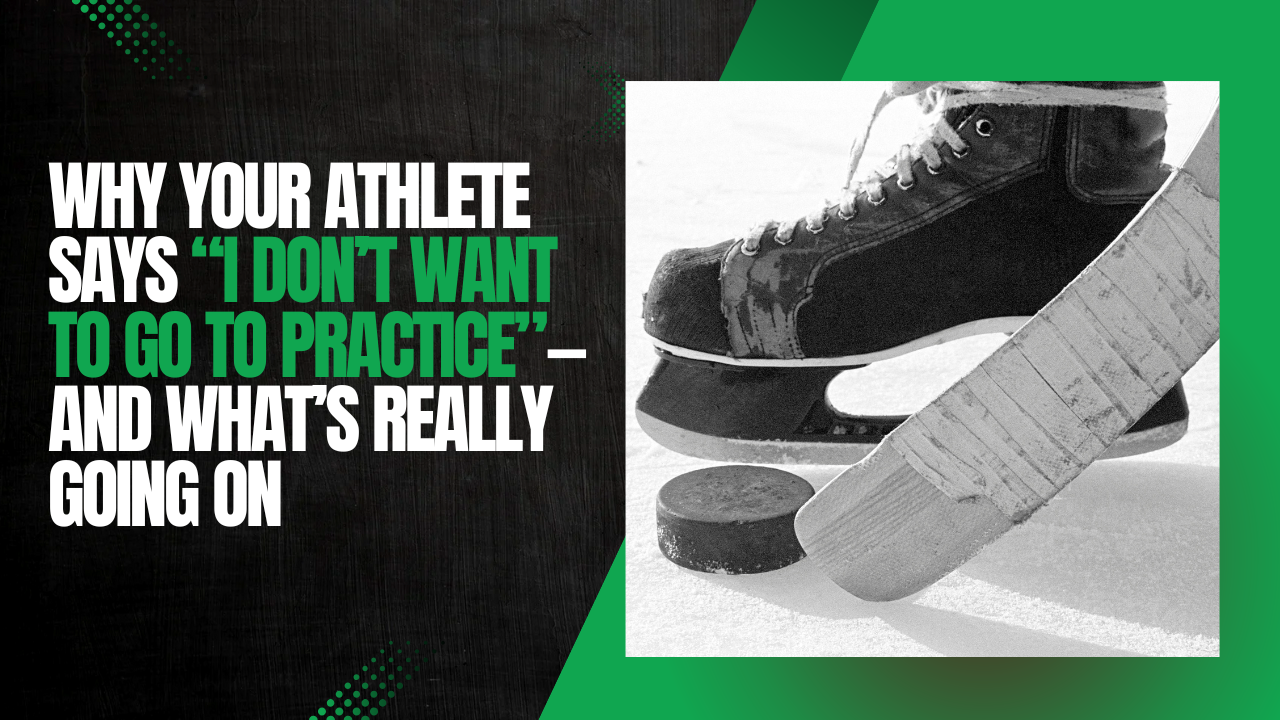
Why Your Athlete Says “I Don’t Want to Go to Practice”—And What’s Really Going On (Even in September)
Sep 21, 2025You used to see it in their eyes—excitement before practice, joy on the field or court, and energy after a hard workout.
But now?
It’s like flipping a switch.
They drag their feet getting ready.
They come home silent or frustrated.
They say things like, “I don’t want to go,” or “It’s just hard right now.”
And you’re left wondering…
What changed?
Is this a phase? Burnout? A sign something’s wrong?
It Might Not Be About the Sport at All
Here’s what I want you to know:
When an athlete starts dreading what they once loved, it’s rarely just about the sport itself.
It’s often what’s underneath the surface:
- Hidden perfectionism
- Internal pressure to perform
- Fear of letting teammates or coaches down
- Feeling overwhelmed with balancing academics and sports after summer has ended
- Self-doubt or imposter syndrome
- Worry that their best might not be “good enough” anymore
These are normal experiences for growing athletes—especially as expectations rise. But without the right tools, they don’t always know how to process or express these feelings.
So instead of saying, “I’m overwhelmed,” they say,
“I hate practice,” or “I just don’t feel like going today…”
A Small Shift That Opens the Door
When you sense that something’s shifted, resist the urge to ask, “What’s wrong?”
Instead, try asking:
👉 “What’s been hardest lately?”
This gentle reframe does three things:
- It helps your athlete reflect without pressure to “fix” anything.
- It invites a specific response rather than a shutdown.
- It shows that you’re a safe space to process—not just a problem-solver.
Often, this simple switch in language opens the door to a real conversation—and that’s the first step toward building emotional resilience and mental strength.
Why Mental Training Matters in Moments Like This
When athletes are supported with mindset tools—not just physical training—they learn to:
- Manage pressure and perfectionism
- Reframe setbacks into learning moments
- Stay grounded when things get hard
- Reignite motivation without relying on results alone
Mental training doesn’t just help when things are falling apart.
It’s what keeps athletes mentally healthy and emotionally steady in the quiet, messy, in-between moments that most people overlook.
And this is one of those moments.
If your athlete has lost their spark for practice, don’t panic.
See it for what it is: a sign that something deeper is calling for attention—and an opportunity to strengthen their mental game.
Because when athletes have the tools to navigate pressure and uncertainty, they don’t just return to loving the sport…
They rise in it.
Have questions? Shoot me an email at Danielle@ocppt.com. I respond to every single one, personally.
